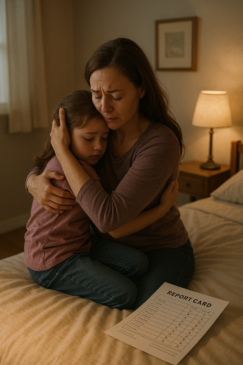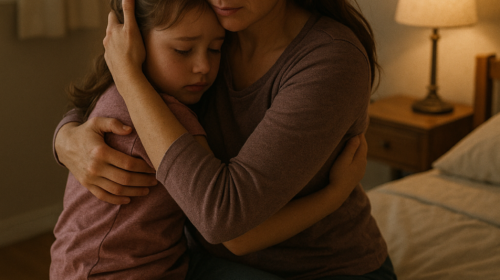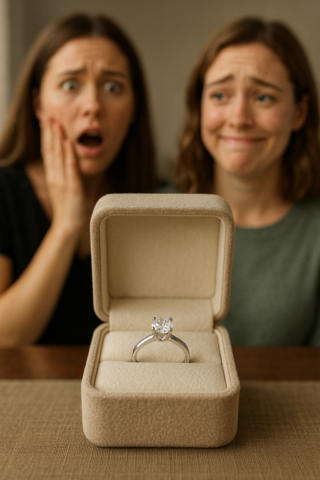I always thought I’d be the kind of parent my daughter could talk to about anything. But the night I found her report card wedged behind her bookshelf, I realized some family stories echo louder than we intend.
The Secret Tucked Away
It was a rainy Thursday evening, and I was searching my daughter Emma’s room for the missing remote. As I reached behind her bookshelf, a crumpled envelope tumbled out. My heart sank when I recognized the school logo and Emma’s careful handwriting.
I opened it to find her most recent report card: mostly A’s and a single C in math. Nothing I would have worried about—at least, not if I hadn’t seen the worry etched across Emma’s face when she came home the day the grades were due.
I waited until bedtime to ask. “Em, I found your report card. Why didn’t you show it to me?”
She hesitated, eyes filling with tears. “I didn’t want you to be disappointed in me,” she whispered.

The Shadow of My Own Story
I suddenly understood. When I was Emma’s age, my parents pushed me hard. Perfection was the expectation, and anything less felt like failure. I’d told Emma stories of my own report card anxieties—how a single B once led to a week of icy silence at home, and how I swore I’d never do that to my own children.
But I hadn’t realized those stories still cast a shadow. My daughter, kind and sensitive, had absorbed my fear without ever living it herself.
“I’m not mad, sweetheart,” I promised, pulling her into a hug. “A C isn’t the end of the world. And you can always talk to me—about grades, about anything.”
Breaking the Cycle
We spent that evening talking honestly—about her struggles with math, her favorite subjects, and the pressure she sometimes felt to “do better” just because she thought that’s what I wanted. I told her how proud I was of her effort, not just her grades. I reminded her that mistakes and setbacks are part of growing, and that my love isn’t measured in A’s and B’s.
For days afterward, I thought about how easily we pass along old fears and high expectations, even with the best intentions. I realized the stories I told from my own childhood could help Emma—but only if I used them to show her she was already enough.
What I Learned
Our children listen more closely than we think. They carry our hopes, but sometimes also our anxieties. It’s up to us to show them that their worth isn’t tied to perfection—or to our past mistakes.
Since that night, I’ve tried to be gentler with both of us. We tackle math problems together, celebrate little victories, and talk openly about the times we feel like we’re not “good enough.” Every report card is now just a conversation starter, not a test of love.
Final Thought
If you find your child hiding something out of fear or shame, look for the shadows of your own story. Offer grace, listen with your heart, and remind them they are so much more than a single grade. The most important thing they’ll ever learn is that home is a safe place—no matter what.



